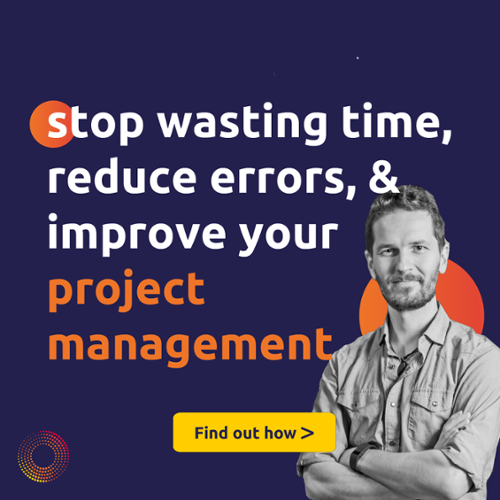For any team running a detailed engineering project, data is the foundation on which successful outcomes are built. Project managers rely on accurate and real-time information to make informed decisions, track progress, allocate resources, and ensure project success. At Proteus we find our clients come to us with legacy Enterprise Resource Planning (ERP) systems in place. These play a vital role in consolidating and managing various aspects of business operations, including project data. These may include Oracle P6, SAP Sage, and IFS to name a few of the standard tools used by our clients, and are often designed to be used by different functions within a company. For example, most cost and purchasing data will be stored within the ERP used by the finance team. The problem we have seen time and time again for both large and smaller businesses is that project managers find it difficult to extract actionable project data from their ERPs. In this blog, we will delve into the essential steps and best practices to extract project data from an ERP system, empowering project managers with the visibility they need to steer their projects towards success.
- The Importance of Project Data
- Understanding Your Company’s Data Structure
- Defining the Data Extraction Scope
- Leveraging a Project Management Tool to Pull Everything Together
- Utilizing Application Programming Interfaces (APIs)
- Ensuring Data Security and Compliance
- About Proteus Project Software
- How to get Proteus
The Importance of Project Data
Project data holds immense value for project managers as it offers a comprehensive picture of project progress, resource utilization, budget tracking, and overall performance. Crucial project data includes but is not limited to: project timelines, resource allocation and utilization, budget tracking, team progress, deliverable milestones, risk assessments, and quality metrics. By analyzing this data, project managers can identify potential risks, predict project outcomes, and ensure timely delivery. However, without access to accurate and up-to-date project data, project managers are left in the dark, making it challenging to monitor progress and take proactive measures. Even in a relatively straightforward project, data is normally collected and stored on various different systems including spreadsheets and ERPs. Therefore, data extraction is an essential process of collecting data from various sources for the purpose of analysis.
Understanding Your Company’s Data Structure
The first step in extracting project data is to gain a thorough understanding of the way your company manages data. ERP systems are comprehensive and diverse, encompassing modules that store project-related information. You may well have an IT team who supports the implementation and updates of the specific software systems but as a project manager you need to understand how different project modules, spreadsheets, and tables interact, and the relationships between them. This knowledge will be invaluable when creating a data management strategy and ensuring data accuracy.
Defining the Data Extraction Scope
Clarifying the scope of data is crucial to maintain the relevance of the data and to make sure you are accessing the right data for analysis and actionable insights. Collaborate with stakeholders to identify the key project metrics and data points they require. Focus on critical parameters like project timelines, budget allocations, resource utilization, task progress, and milestone achievements. Define the specific calculations you want to use to get your KPIs: these often include Earned Value (if you are a consultancy) or Value of Work Done (if you are a project owner) as well as CPI, SPI, EAC, etc. Tailor your data strategy to meet these specific needs.
Leveraging a Project Management Tool to Pull Everything Together
Many companies waste time and introduce risk by duplicating data from one source to another. By using a project management tool to pull together project plan data, schedules, budget with progress tracking and spend, you can achieve two critical advantages. The first is your whole team will be able to see the right data with reporting and analytics tools that simplify data extraction. In other words, you will no longer have to email the accounts department to find out how much the purchase order cost, then wait for a day, then discover the information is out of date. The second is that you remove risk of duplication. Most tools have dashboards that are automatically updated once the key data is recorded, making data access and interpretation more straightforward and insightful. Proteus is an example of a project software that is designed to use data from multiple sources, providing project managers with access to data they normally struggle to see.
Utilizing Application Programming Interfaces (APIs)
Achieving this too-good-to-be-true paradigm, where all systems are seamlessly working together is no longer a pipe-dream. Application Programming Interfaces (APIs) offer a standardized and secure way to interact with an ERP system’s data. These interfaces allow seamless communication between the ERP system and external applications, facilitating data extraction. Consult the ERP system’s documentation to understand available APIs and their capabilities. Developing custom scripts or using specialized tools can help automate the data extraction process through APIs. Proteus has an in-house development team who work with clients to make sure their existing systems all work together with Proteus.
Ensuring Data Security and Compliance
Data security and compliance should be paramount. Ensure that proper access controls are in place to restrict data access to authorized personnel only. Additionally, comply with data protection standards, such as ISO 27001, to safeguard sensitive project information. Project data is continually changing, and project managers require the latest information for effective decision-making. Real-time data is optimital but often you will find you have to rely on regular data updates and extractions from your ERP and other tools. Additionally, maintain backups of extracted data to ensure data integrity and recoverability in case of system failures.
In conclusion, gaining visibility over project progress is paramount for project managers, and extracting project data from an ERP system plays a pivotal role in achieving this goal. By understanding the ERP system’s data structure, defining the data extraction scope, using a powerful tool like Proteus to benefit from automatic reporting features, leveraging APIs, and ensuring data security, project managers can access accurate and real-time project data. Empowered with this visibility, project managers can make well-informed decisions, identify potential risks, and drive projects towards successful outcomes. Remember, data is the key to unlocking the full potential of any project, and with the right data extraction strategies in place, project managers can conquer even the most complex challenges.

About Proteus Project Software
Xergy Group’s Proteus project management software is designed to work with your existing systems and to scale and evolve as your business grows. Created by project management leaders, for the diversified engineering consultancy sector, Proteus delivers an end-to-end work management software platform with detailed workflows from the early opportunity stage through to project delivery.
Proteus’ end-to-end project management software is a cloud-based system designed for businesses of all sizes to handle projects of unlimited complexity and is compliant with common project management frameworks and ISO standards. Each feature is aimed at making bottom-line improvements by improving utilisation, streamlining workflows, providing quick and efficient access to resources, and reducing overheads. Check out some of our client case studies to learn more about how Proteus makes a tangible difference.
How to get Proteus
We recommend getting setup on a free trial. Proteus operates under a software-as-a-service (SaaS) model. We offer Enterprise packages and flexible pricing solutions: contact our team to learn more.
We designed Proteus to be simple, and that means you can get up and running on Proteus without an IT team or support from a programmer. You will want to spend a bit of time configuring the admin console so that you have everything set up to suit your company structure, but it’s very intuitive and you don’t need a PhD in IT. However, we want you to get the best out of what is a brilliantly powerful tool, so don’t hesitate to ask for our support. We have a team of product experts who are ready to help you with the configuration process, so get in touch today by filling out the form below:



